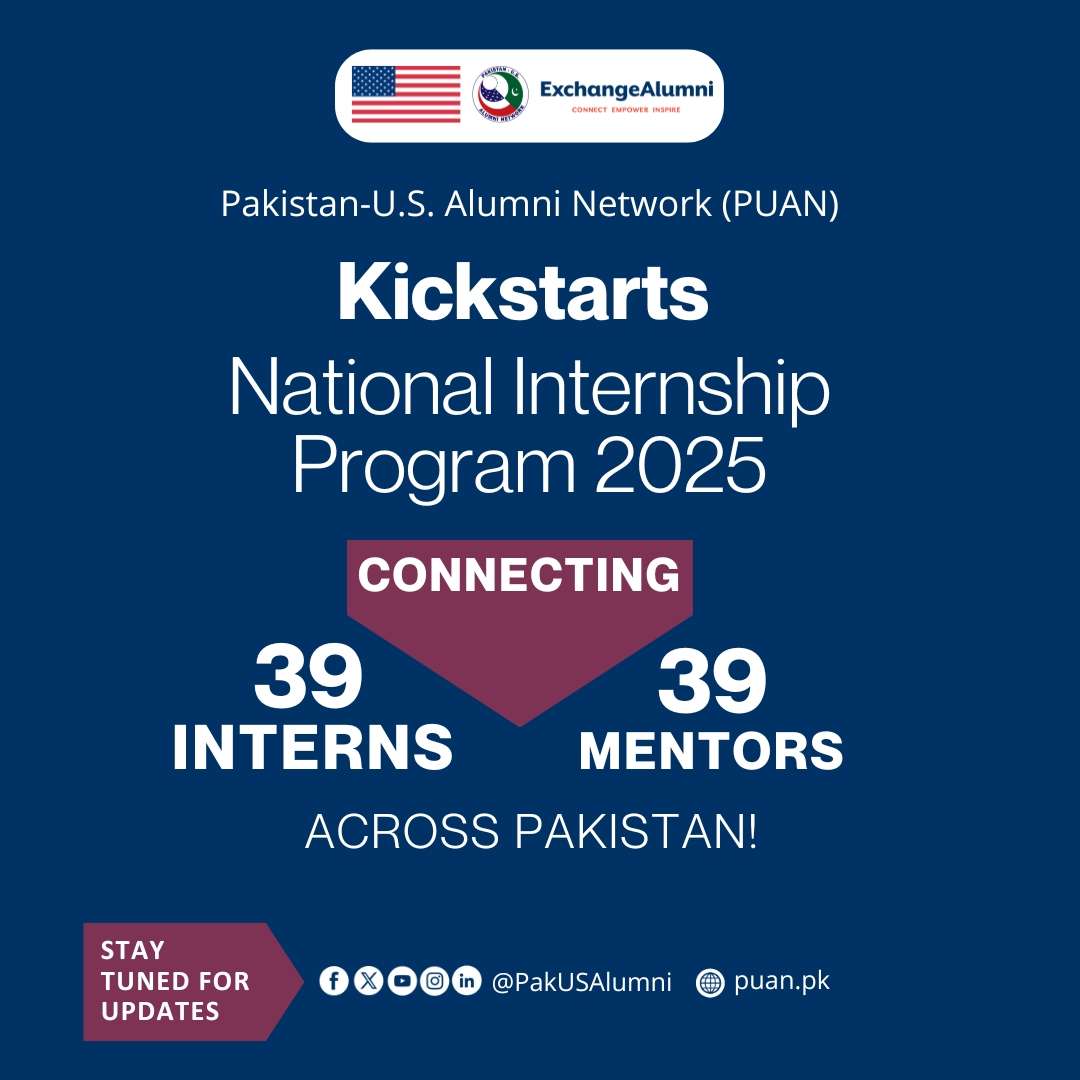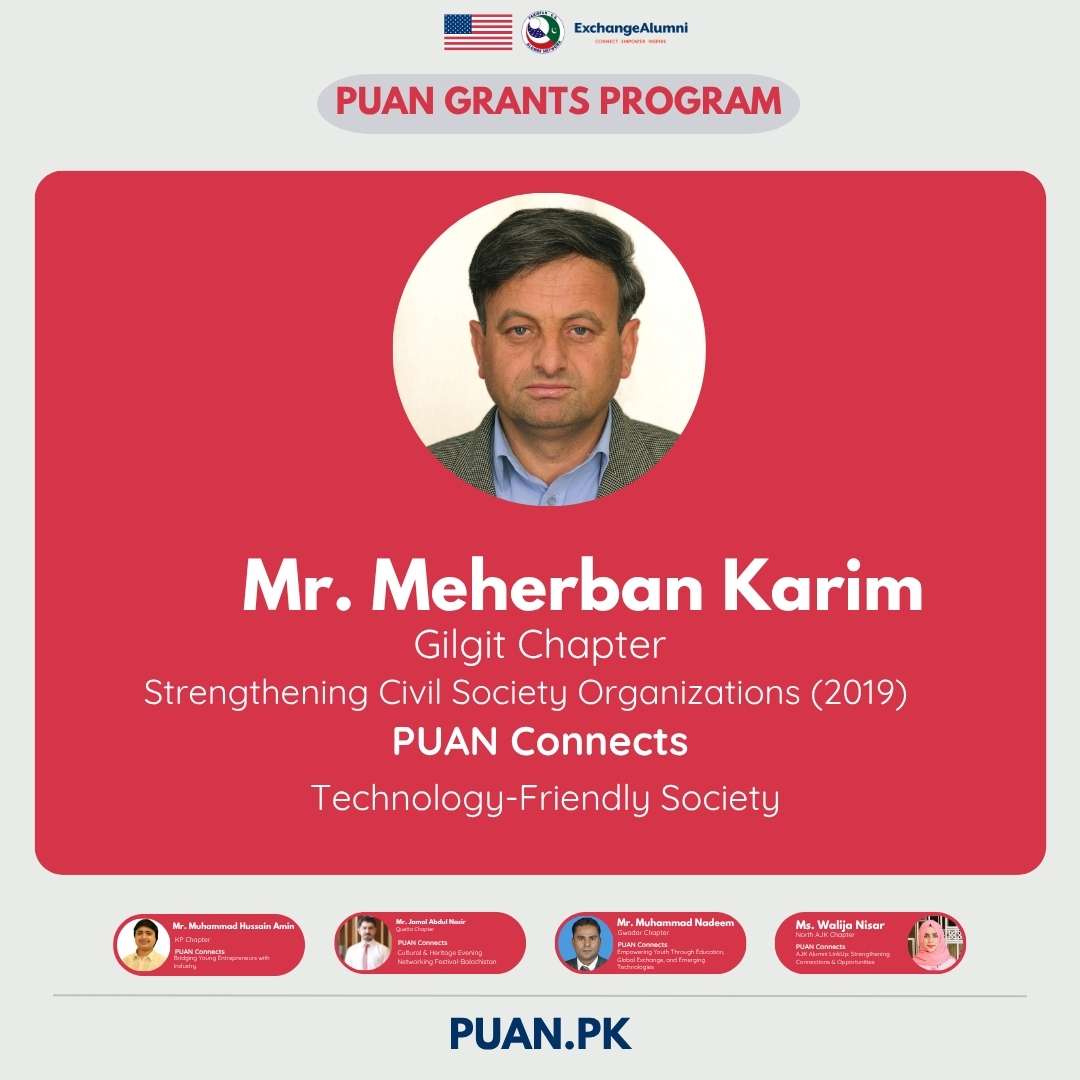By Rimsha Ali Shah
“For the first five years after my accident, I was bedridden and oblivious; there was no guidance available for a person like me with such a severe disability because of my spinal cord injury.”
Fast forward to the present. An independent and self-assured Maria Qureshi was now mentoring a group of 30 women on how to improve their lives on their own. Her personal struggle is what prompted Qureshi, an alumna of the International Visitors Leadership Program on Disability Exchange, to design and execute a specialized training workshop for women with spinal cord injuries.
Recalling how she overcame the obstacles she faced by sheer willpower and motivation stemming from meeting like-minded people, she said:
“There are some things you only learn through life experiences. Through this project my purpose is to give hope to the women present here that life has not ended for any one of us. This disability is not a hurdle – it is an opportunity.”
Qureshi’s project “Life with Spinal Cord Injury” was a three-day training program designed for women suffering from Spinal Cord Injuries (SCI), poliomyelitis, and female attendants. The workshops provided holistic guidelines and motivation to the 30 female participants attending the workshop from Rawalpindi/Islamabad, Jhelum, Peshawar, Bagh, and Muzaffarabad. This program was made possible with the help of an alumni small grant from the Pakistan-U.S. Alumni Network (PUAN). All alumni of various U.S. government sponsored exchange programs in Pakistan are eligible to apply for the grant of up to 5,000 USD to enable them to give back to their communities.
Sessions Address How to Live with SCI

It had been 10 months since the ill-fated accident that made Ammara Aizaz, mother of three children, wheelchair-bound. “I wanted to manage myself and my chores on my own and this training has given me not only the technical support to become self-sufficient, particularly on how to shift myself from the chair to the bed and vice versa, but also the moral boost to take back control of my life!”
The three-day training program had sessions on emotional adjustment, self-management, shifting methods (from point A to point B), personal hygiene and grooming, disability and leadership, strengthening exercises, weight management and attendantship, covering all aspects of life with spinal cord injuries.
“Saima’s story gave me strength and hope in my own future,” said Safeena from Sara-i-Alamgir, whose life took a turn when an operation of a tumor in her back left her with a spinal cord injury. “How Saima battled through her pain and pushed through has engineered a passion in me to not let go of my dreams.”
Saima Aslam’s story was one that inspired and served as a beacon of hope for all the participants at the session. Her extreme disability required the presence of a 24-hour attendant and in her session on “Attendantship: The What and How of Attendants” she detailed her own journey of working towards inclusion, her selection in the International Visitors Leadership Program (IVLP) on Disability by the State Department where she learned more about problems, solutions and behaviors towards disability, and how she became the National Coordinator at National Disability Forum (NDF).
Developing Disability Advocates

Abia Akram, a proponent of the disability movement since 1997, stressed the need for the women present to serve as strong voices in advocacy to push for an inclusive economic, social, and political environment for women with disabilities. Akram has served as the first-ever Pakistani woman nominated as the Coordinator for Commonwealth Young Disabled People’s Forum and the Global Coordinator at Global Network of Emerging Women Leader, Disabled People’s International. Her session prompted participants to identify avenues they could pursue in their neighborhoods and social circles to promote inclusivity for the disabled. “Fear counseling is the most important element of inclusion. We need to encourage survivors to talk and build their confidence so that they are able to accept this lifestyle and lobby to promote acceptance of disability among the public.”

For Ayesha Akram, a poliomyelitis patient, a training of this sort should be replicated across Pakistan, especially in the far-flung rural areas so that awareness can reach the grass-root level and acceptance for disabilities is prevalent as a norm – not as a special circumstance.
The workshop series reassured Qureshi of her fierce belief in building a support system for women with disabilities to allow them to flourish and excel in life by sharing life experiences and motivating each other through personal stories of resilience. She now plans to replicate the training across Pakistan.
Check out photographs from the event here.





